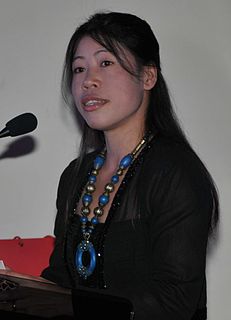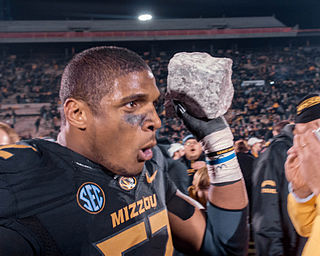A Quote by Alice Walker
My family was a poor farming family, and we lived under absolute segregation.
Related Quotes
In my opinion, if 100% of the people were farming it would be ideal. If each person were given one quarter-acre, that is 1 1/4 acres to a family of five, that would be more than enough land to support the family for the whole year. If natural farming were practiced, a farmer would also have plenty of time for leisure and social activities within the village community. I think this is the most direct path toward making this country a happy, pleasant land.
My family came to Australia on the First Fleet. My family’s been in that country for a long time, over 100 years. If your family’s lived in Australia for a long time, everyone has a little bit of [Aborigine blood]. I know my family does because we have an eye condition that only Aboriginal people have.
I'm in a very close-knit, very, very tight family. My grandmother had 13 kids, so we had a lot of family like 50, 60 grandchildren and we all lived in Jersey, relatively in the same area. So every time there was something, my entire family was there. And I just believed everybody's family was like that.
My family was very notorious in the town that we lived in. Everyone would say, 'There goes those damn Sams.' I didn't want to paint that ill picture of me. I knew the good in my family. They didn't know our background and the adversity we had to endure. I wanted to succeed and be a beacon of hope in my family.







































